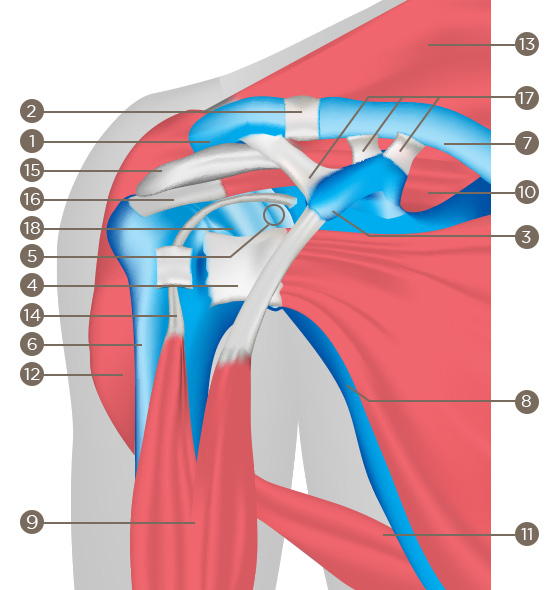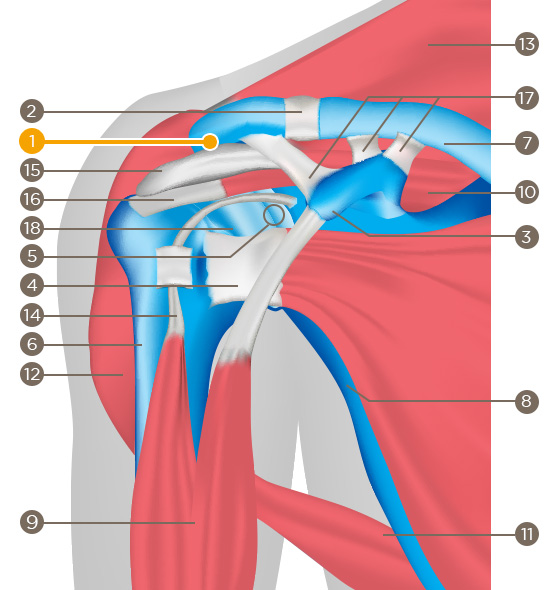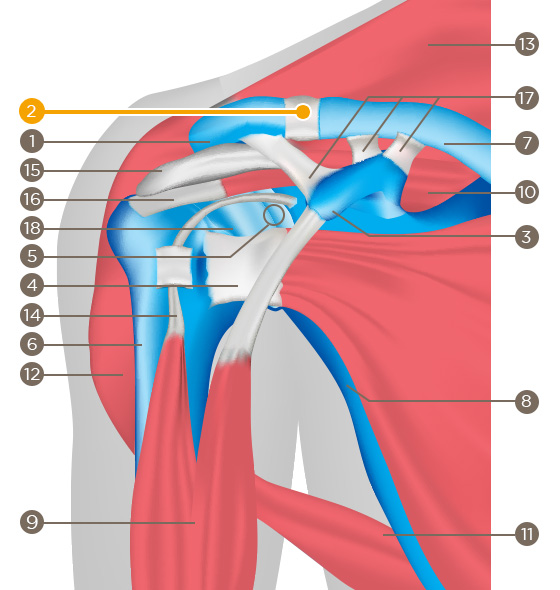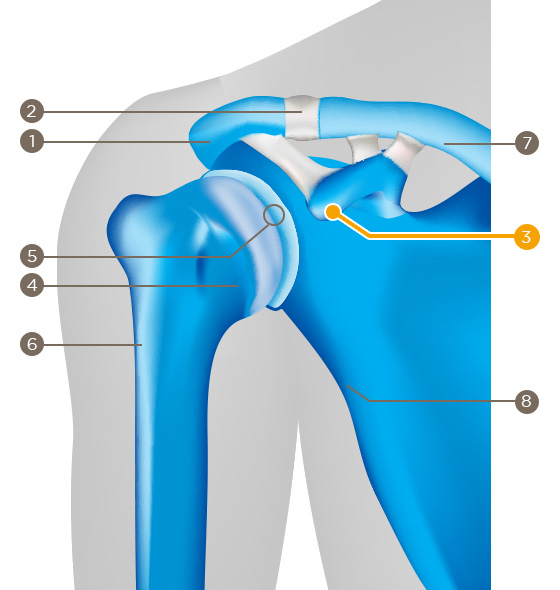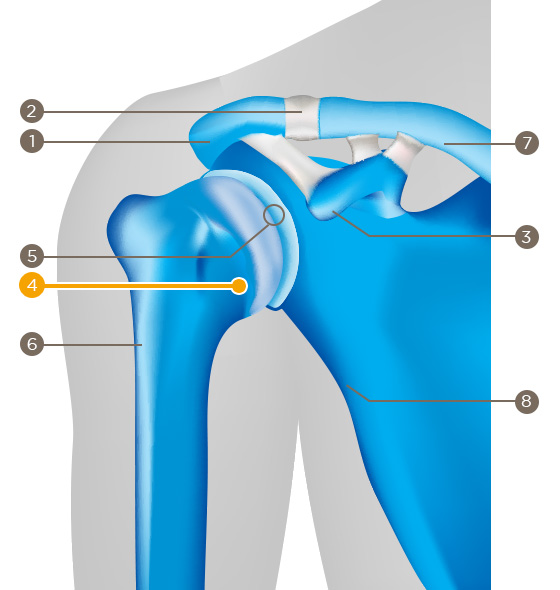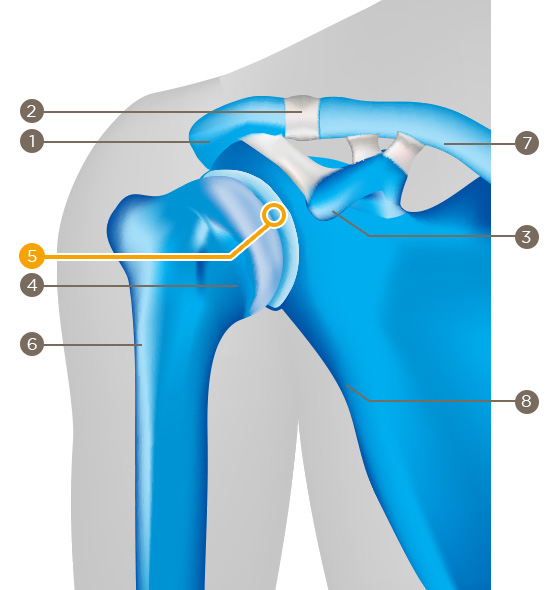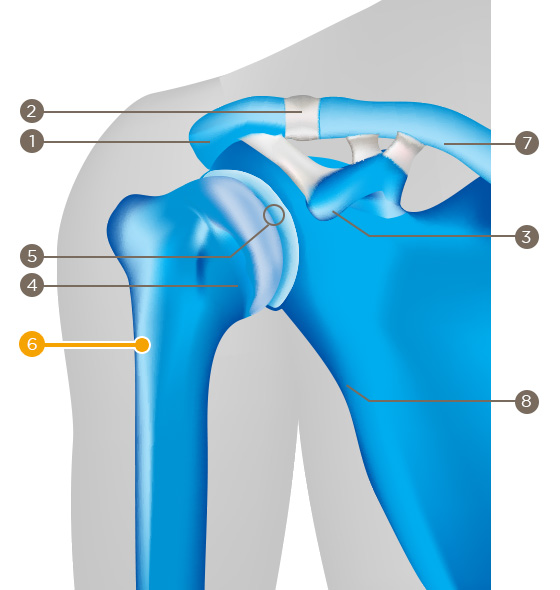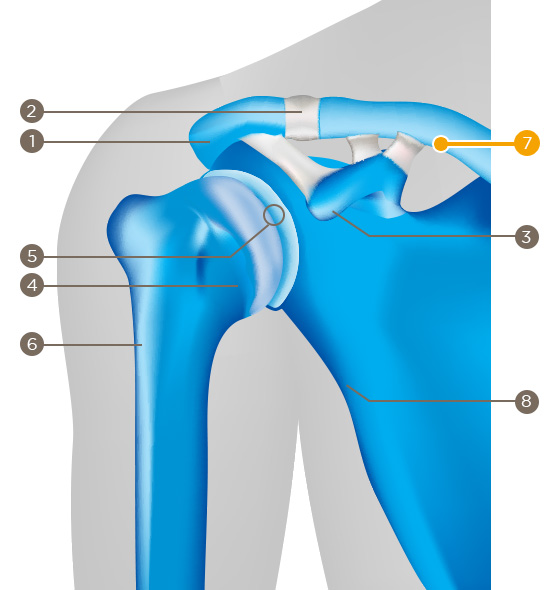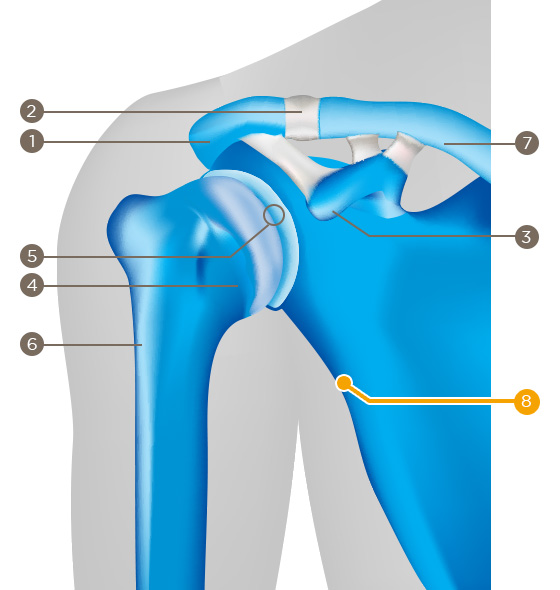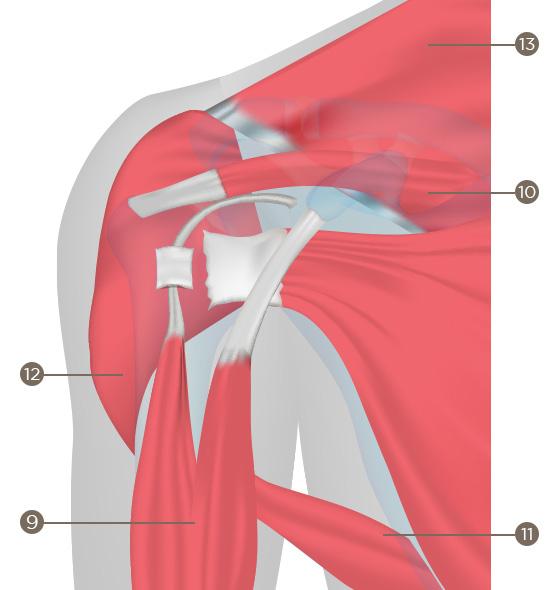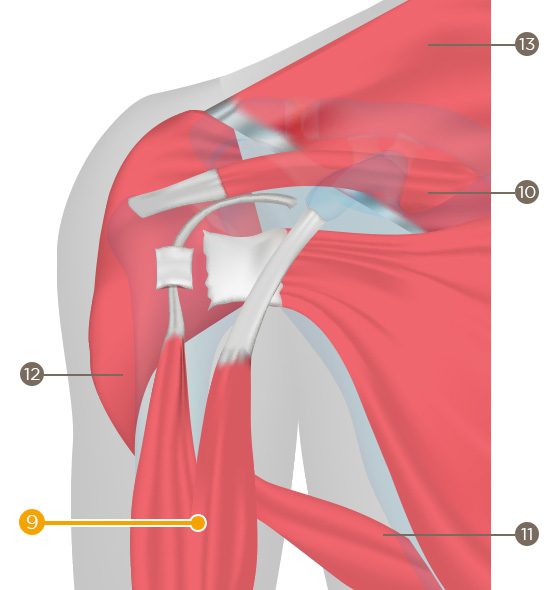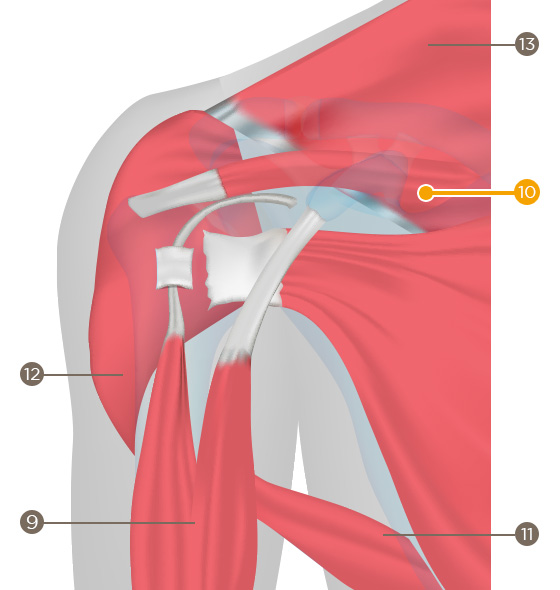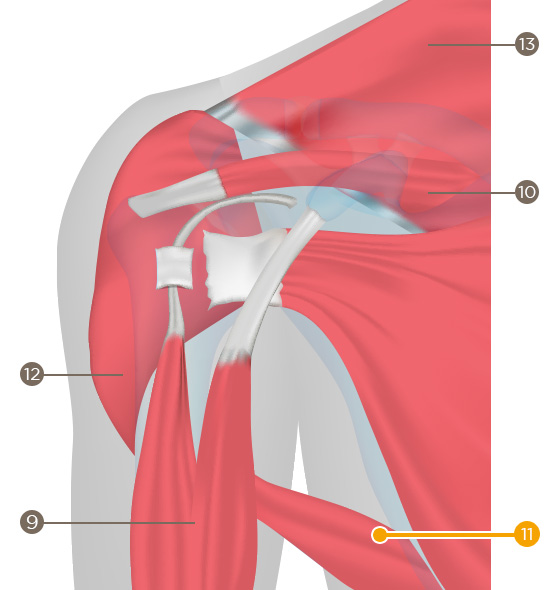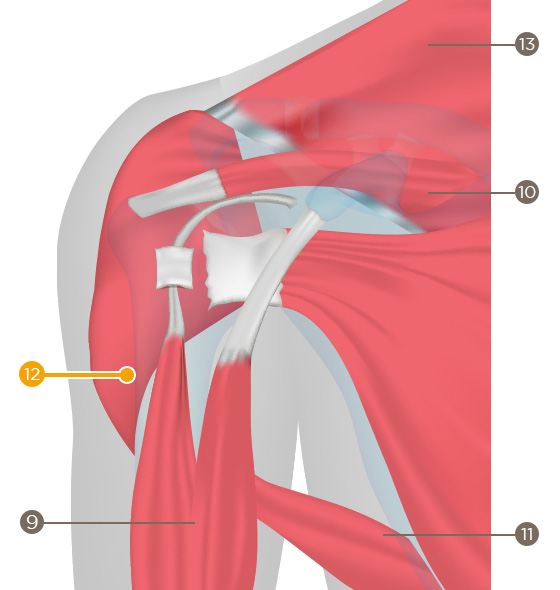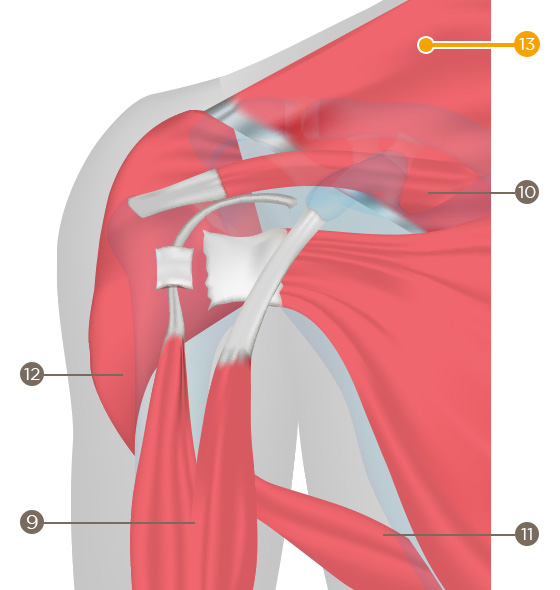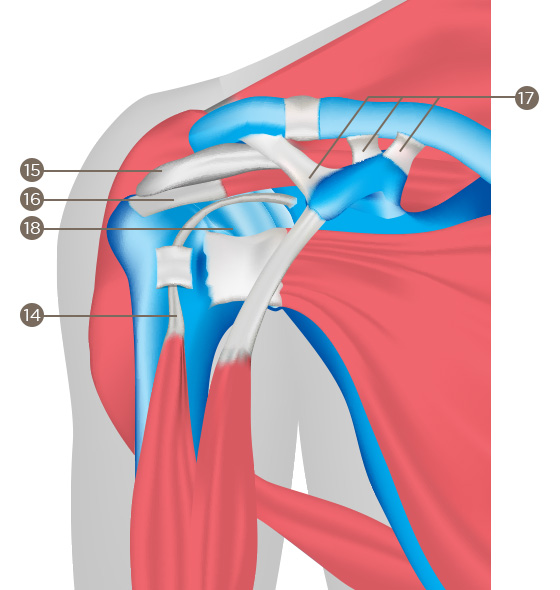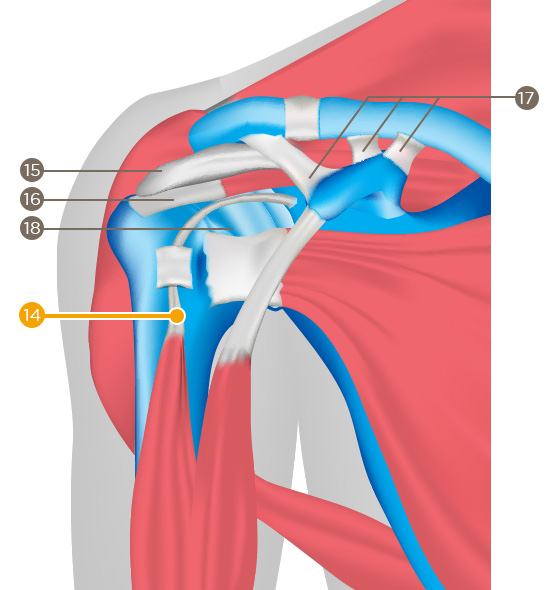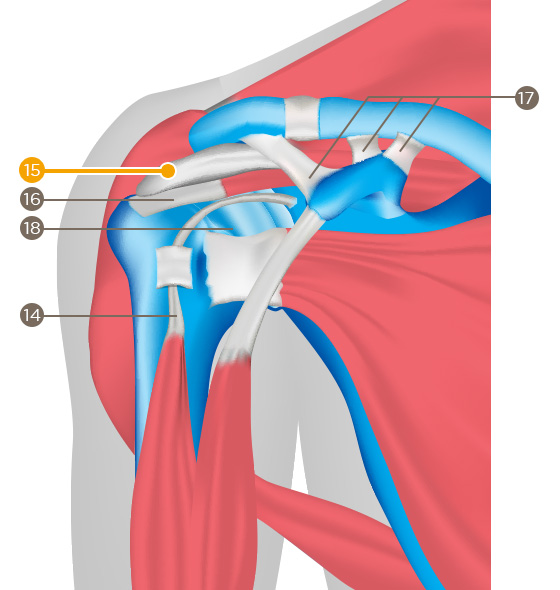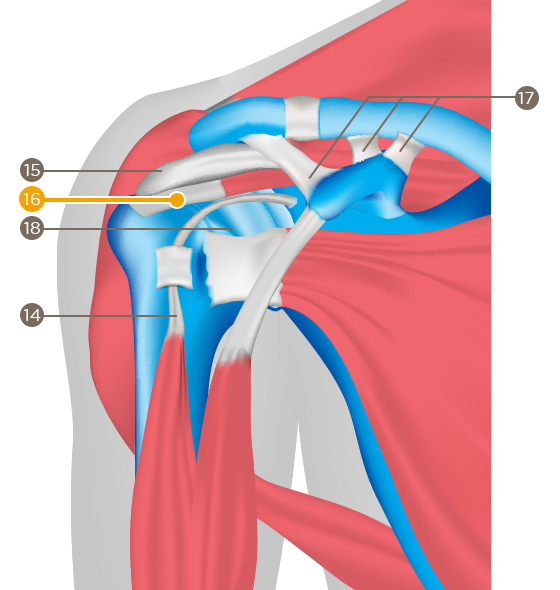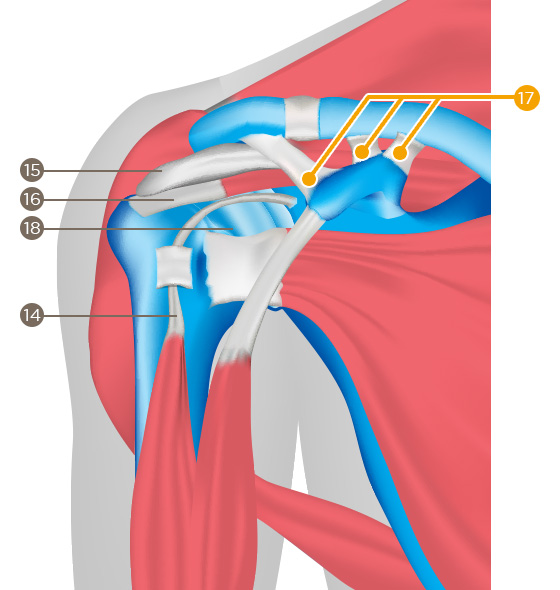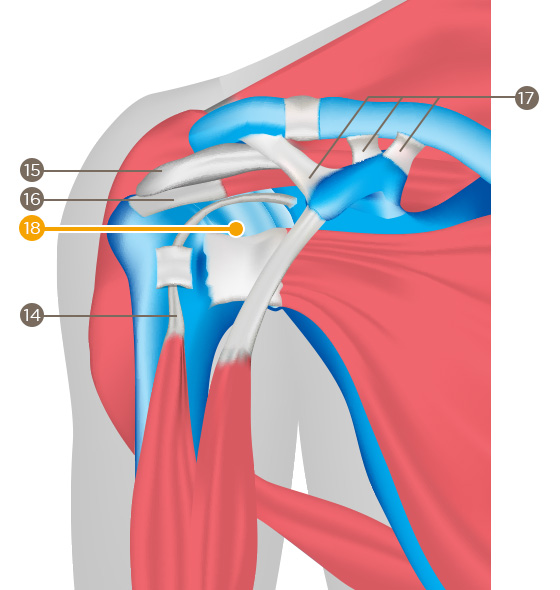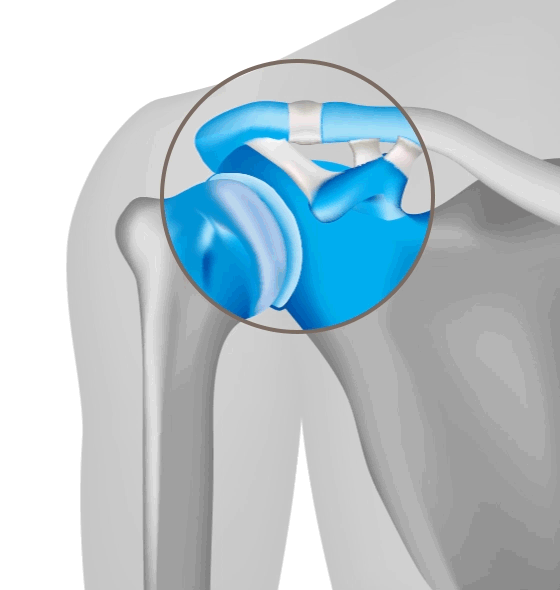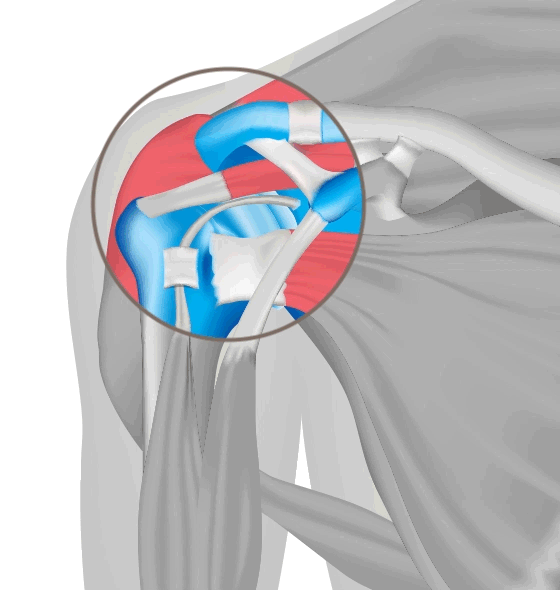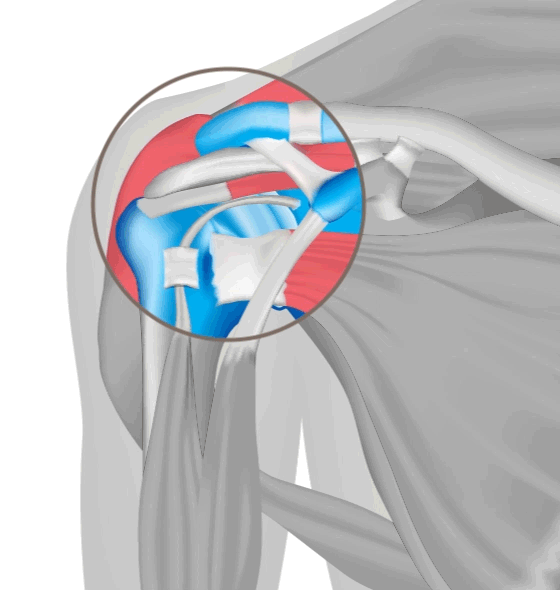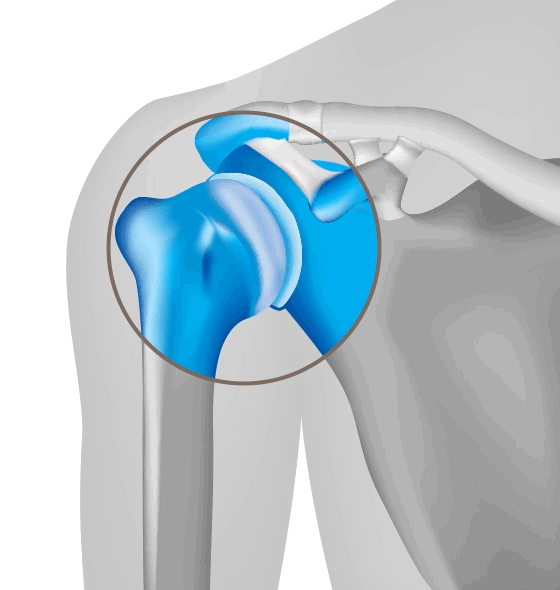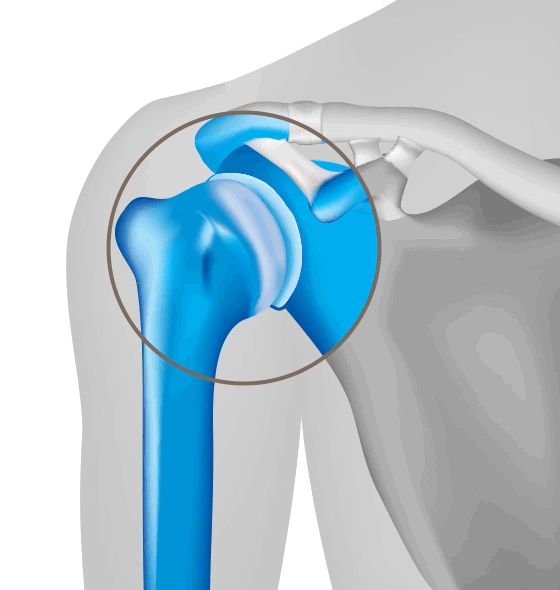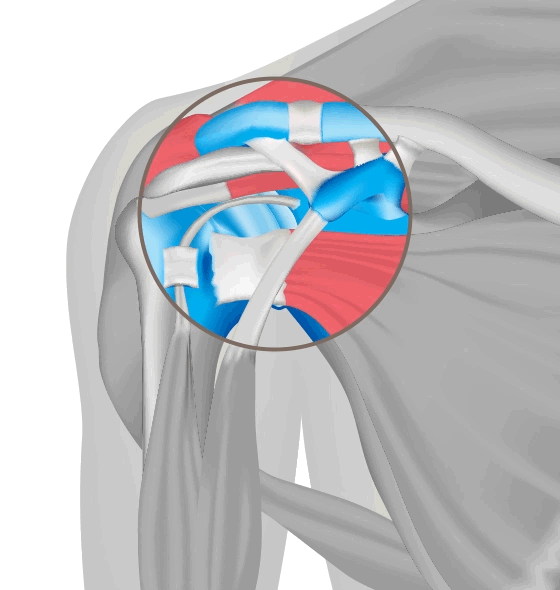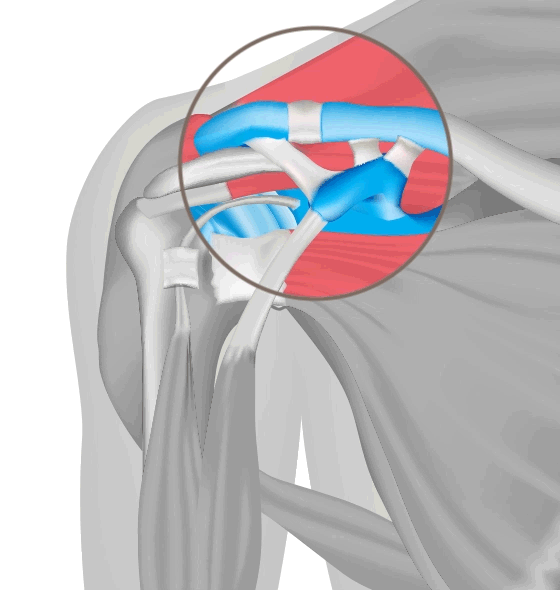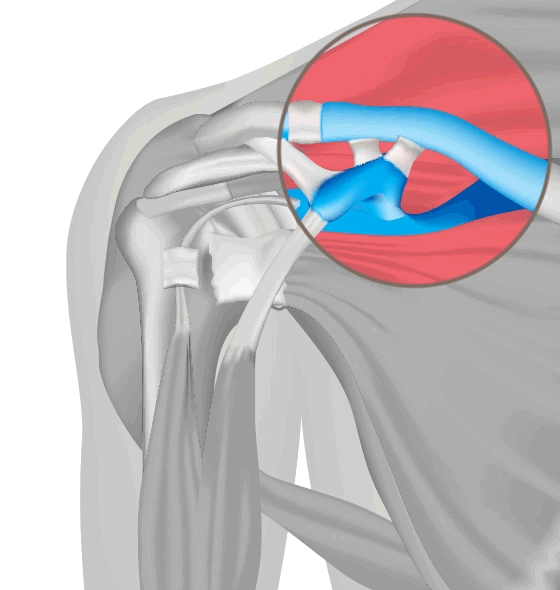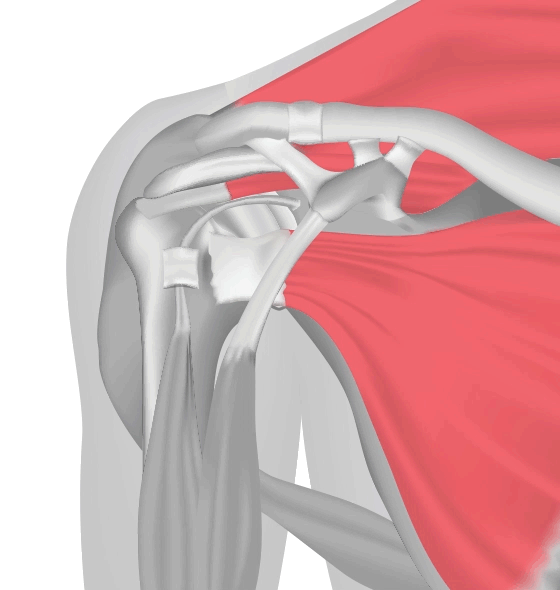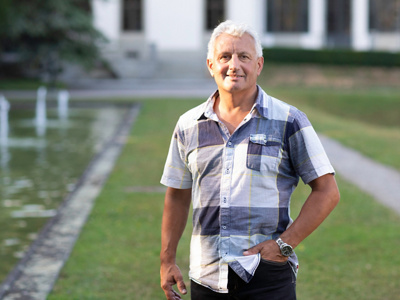The shoulder joint is highly mobile and relies on coordination between various muscles, tendons and ligaments – yet these traits also make it vulnerable to injury. Shoulder injuries typically involve the rotator cuff. However, osteoarthritis, dislocations, impingement or a broken collarbone can also cause shoulder pain and limit the mobility of the joint. Here is an overview of the structure and problems associated with this complex joint.
Due to its complex anatomy the shoulder is prone to injuries and to degenerative wear and tear such as:
- Osteoarthritis of the shoulder
- Frozen shoulder / Painful shoulder syndrome
- Collarbone fracture
- Rotator cuff rupture
Patient Q&A
Our medical specialists regularly answer readers’ questions in newspapers, magazines and online. We have put together a few of these questions and answers for you here. Please note that the Q&A is purely informative. The advice provided is not comprehensive and does not substitute a consultation with a medical professional.
Shoulder pain
«I would like to ask a question on behalf of my colleague: three months ago she was playing with her nephew and during the rough and tumble he accidentally hit her, and something went click in her shoulder. Then she also started having pain in her shoulder and couldn’t lie on it any more. The pain still hasn’t gone away and she keeps waking up during the night whenever she rolls onto her left shoulder. For the last three or four days she has been in pain virtually all day and she can’t extend her arm that well either. Is that just bruising or something more serious?»
Unfortunately the information you have provided is not specific enough for us to come up with a tentative diagnosis. An acute injury, like the one your colleague suffered when playing with her nephew, should generally be checked out immediately by a doctor. It’s important to establish whether the shoulder has been dislocated or not (shoulder luxation). The examination should also check whether any tendons have been torn. In these kind of situations, I recommend getting checked out by a medical specialist relatively soon after the injury has occurred.
Dr. med. Walter Seelig, Hirslanden Klinik Birshof, Münchenstein Basel
Torn ligament in the shoulder
«My father’s partner (78) had a fall 10 weeks ago. They both live abroad. She tore the ligaments in her shoulder and needs an operation. The earliest appointment she could get for the operation is in 7 months. She has very severe pain, particularly at night. She’s currently doing physiotherapy and taking pain killers that have various side effects. She has already had an ultrasound, so would it be possible to have the images evaluated by a specialist in advance?»
Based on your description, I assume that your father’s partner has a torn rotator cuff (tear in the inner tendon). It is treated using a routine operation that is frequently carried out these days. An arthro-MRI examination is usually required to assess the possibility of reconstructing the cuff and the expected outcome. Sonographic (ultrasound) images can only be interpreted by the person performing the examination. An external assessment of the sonographic images is not possible. If an operation is indicated (is necessary and has a good chance of success), in Switzerland, the procedure can usually be scheduled and performed relatively quickly. However, the patient must have sufficient insurance coverage.
Dr. med. Walter Seelig, Hirslanden Klinik Birshof, Münchenstein Basel
Our services for a healthy shoulder
Our health is the greatest gift. The following principle applies: Prevention is better than cure. We support you with our health and prevention offer:
- Medical check-ups
- Sports check-ups
- Genetic examinations
With a widespread orthopaedic network of hospitals, centres and emergency departments, we are here for you around the clock.
In orthopaedics, a diagnosis that is as precise and comprehensive as possible provides the basis for suitable, individual treatment. Learn more about the different diagnosis procedures and the possible conservative and surgical treatments.
Return quickly to everyday life and get your original quality of life back:


